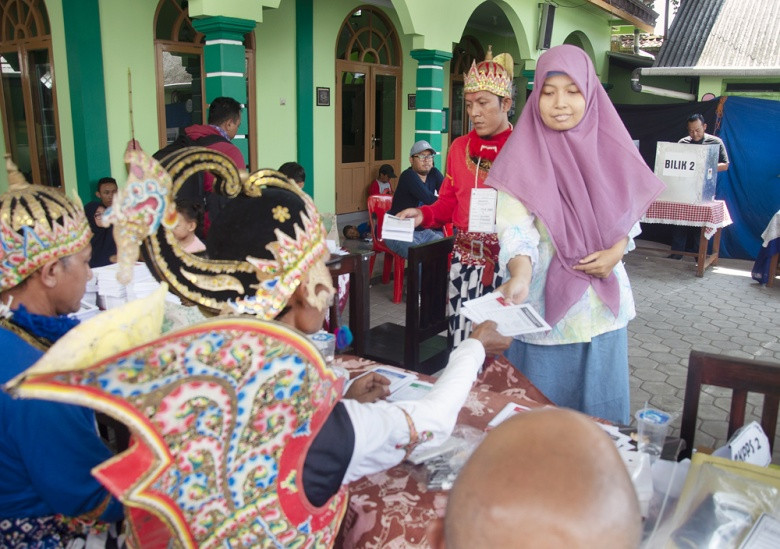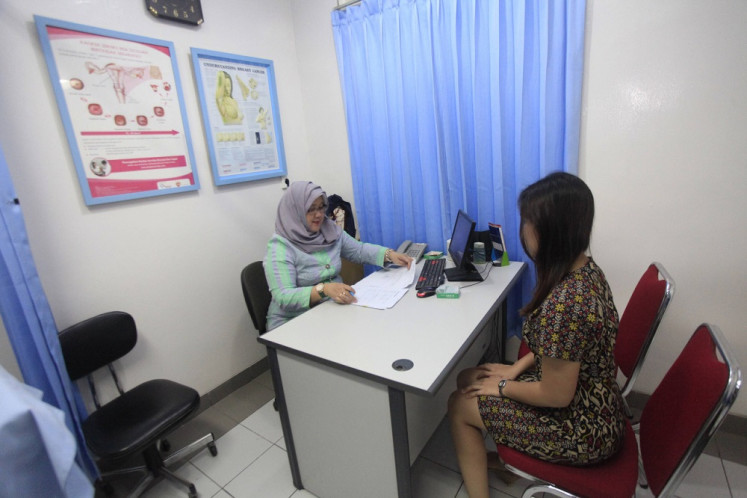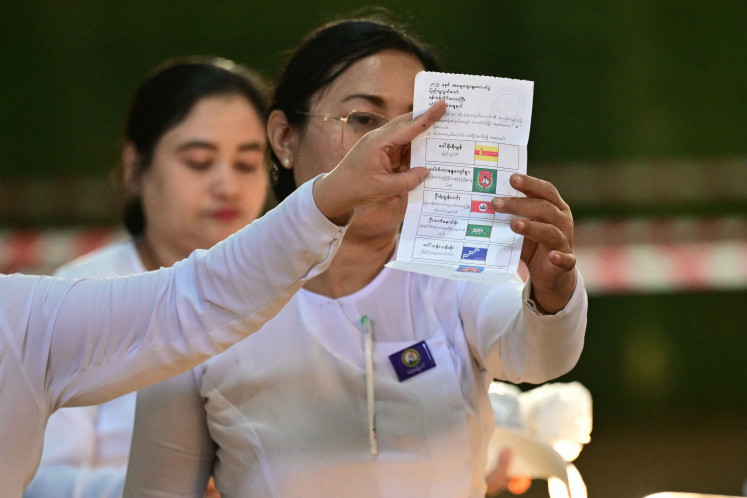Popular Reads
Top Results
Can't find what you're looking for?
View all search resultsPopular Reads
Top Results
Can't find what you're looking for?
View all search resultsSet the election dates!
The KPU has at least 20 months to prepare for the elections, so the government can no longer prolong the uncertainty regarding the election dates that will only fuel wild speculations regarding the presidential term.
Change text size
Gift Premium Articles
to Anyone
 Festive election: Dressed in traditional Javanese attire, poll workers serve voters in Giwangan subdistrict in Yogyakarta in the April 2019 legislative election. The Indonesian Democratic Party of Struggle (PDI-P) has sparked a controversy for demanding the reinstatement of the closed-list electoral system. (JP/Tarko Sudiarno)
Festive election: Dressed in traditional Javanese attire, poll workers serve voters in Giwangan subdistrict in Yogyakarta in the April 2019 legislative election. The Indonesian Democratic Party of Struggle (PDI-P) has sparked a controversy for demanding the reinstatement of the closed-list electoral system. (JP/Tarko Sudiarno)
T
he 1945 Constitution makes it clear that the presidential term ends after five years, meaning that President Joko “Joko” Widodo, who was reelected in 2019, will complete his final term in office in 2024, a few months after the country elects his successor.
Thus, there should be no doubt that Indonesia will have a new president in 2024, with President Jokowi being constitutionally barred from seeking a third term. This statement should have been a political consensus that needs no questioning whatsoever, for the simple reason that it is nothing less than a Constitutional mandate.
It is therefore concerning that as we approach 2024, concerns have been raised over whether the next legislative and presidential elections can be held that year, and that, for the first time since reformasi, a sitting president may extend his term beyond the Constitutional limits if the political establishment decides to postpone the polls.
President Jokowi has repeatedly dismissed such speculations, with his political aides quoting him as saying that he is loyal to the Constitution and would not risk angering leaders of major political parties who are ready to compete for his job in 2024. The political elites have also said they are not in a rush to amend the Constitution.
Yet, such speculations have refused to go away, not only because some of Jokowi’s loyalists are still pushing the unconstitutional agenda, but also because the government and the House of Representatives have yet to set a clear timeline for the 2024 elections.
For the first time ever, Indonesia will hold the legislative, presidential, and nationwide regional elections in the same year. It is only rational that the election dates be determined as soon as possible to give the General Elections Commission (KPU), which has offered some dates, time to prepare one of the biggest elections in the world.
However, the government—represented by Home Affairs Minister Tito Karnavian—has refused to agree to the KPU’s proposal that the general election be held on Feb. 21, 2024, and the regional elections on Nov. 27, 2024. Tito has argued that holding the general election in February would only prolong political polarization, thus undermining the government’s programs. He suggested they be held in April or May.
The KPU has objected to Tito’s suggestion, considering that the results of the legislative elections need to be finalized before it can organize the regional elections. Delaying the general election beyond March would create complications, it said.
Technicalities aside, we believe it is crucial that the government, the House of Representatives and the KPU resolve their differences and come up with a clear election timeline that will ensure we will have a free and fair election in 2024.
The KPU has at least 20 months to prepare for the elections, so the government can no longer prolong the uncertainty regarding the election dates that will only fuel wild speculations regarding the presidential term, and thus the fate of our democracy.
We are ready for the next pesta demokrasi (fiesta of democracy). Now set the dates!









